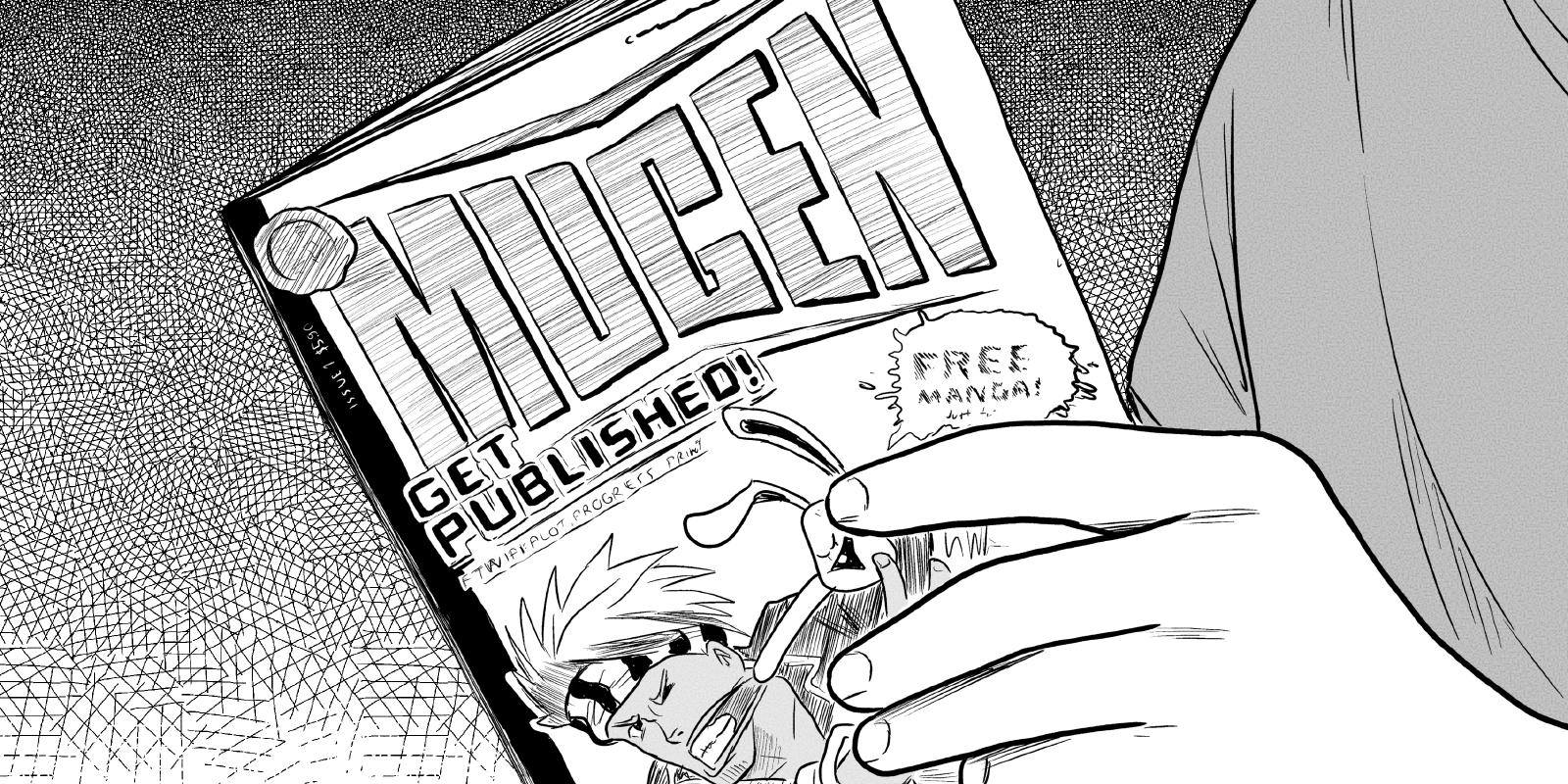
Mugen Comics Anthology
Mugen was a local comics anthology published by reformed comics pirate house Chuang Yi and spearheaded in 2007 by the Media Development Authority and the National Book Development Council of Singapore. Under the First-Time Writers & Illustrators Publishing Initiative (what a mouth-full!), the project was supposed to kick start the Singapore comics industry and then bring them to the rest of the world. Mugen means unlimited in Japanese, by the way, which wasn't the best of names if this was supposed to be a fully Singaporean work.
If you take note of the date, that's the year that I came back. So of course, it got me interested. As part of the process, all potential participants were invited to that talk in Part 7 where a veteran Taiwanese artist gave his words of wisdom. I won't spoil what he said if you haven't read it yet. But I will say that I was in the audience and I was one of the folks who sent in an application.
Naturally, I didn't make it. At the time, I made the excuse that my kind of work wasn't what they were looking for when it was probably the fact that I was way out of my league compared to the 10 artists/teams who made it into the anthology. Nevertheless, it didn't bother me that much. In fact, it completely freed me in deciding to make my own thing even if it would mean violating the rules of what made a comic book a comic book.
So did Mugen achieve what it sought out to do? Well, if you remember the conversation between the two guys in the panel above, you can already guess where it was headed, which is a shame because some of the comics in the anthology were pretty good. Now that I'm so long into the game myself, I can say that these government art schemes were classic cases of right intentions, wrong alignment of goals.
Nobody ever wants to admit this, but many people expect success out the door. When you add the Singaporean penchant for getting results in as short a time as possible, it's just going to be a waste of time for the creators and money for the public. Such initiatives did come back in other forms over the years, but each iteration never got off the ground because the very low bar KPI of merely getting published is very easy to pass. They don't look beyond that, which is where the hard shit is.

